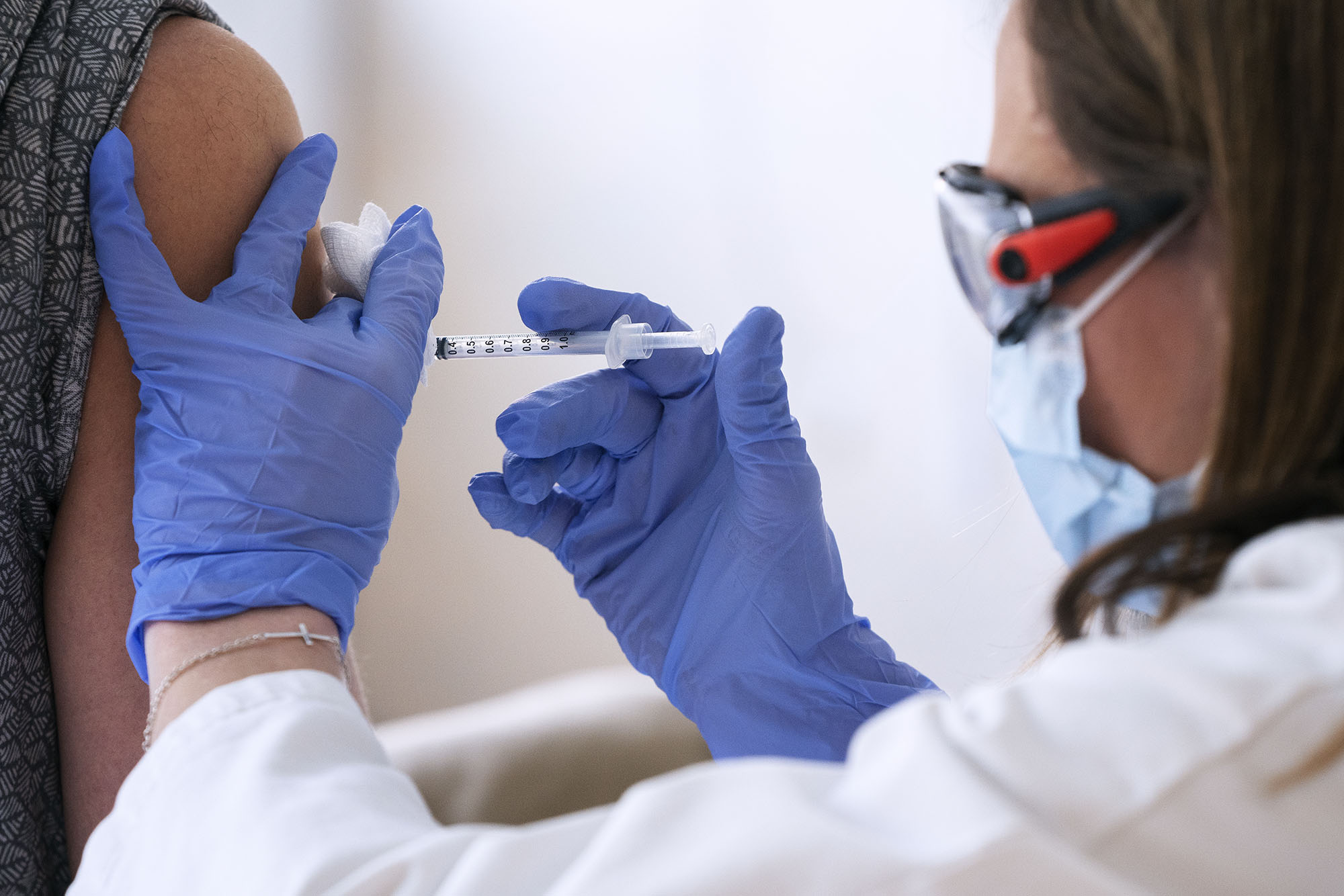When can I get a COVID-19 vaccine and how will it help me?
This is a key question on many people’s minds right now, as vaccination campaigns continue to ramp up across the U.S. in an effort to end the COVID-19 pandemic. In Charlottesville, UVA Health has provided more than 40,000 vaccine doses, Dr. Costi Sifri, director of hospital epidemiology, said in a virtual town hall Friday, meaning that about 25% of the Charlottesville population has had at least one dose of the vaccine.
This is excellent news, but more widespread vaccination raises its own set of questions. How much immunity do the vaccines actually confer? Can people who have been vaccinated still spread the virus? Is it safe to visit friends or loved ones who have had the vaccine?
Dr. Eric Houpt, chief of UVA’s Division of Infectious Diseases and International Health, joined us to answer some of those questions. Among other efforts focused on the pandemic, Houpt is overseeing the Virginia Coronavirus Serology Project, aiming to identify the true extent of mild and asymptomatic COVID-19 infectious across the state and better understand how close we are to herd immunity.
Here’s what Houpt had to say about the vaccines and the precautions we still need to take.
Q. What do we know about the immunity conferred by the vaccine, and what do we not know?
A. We know that the two vaccines that are currently available in the U.S. (Pfizer and Moderna) are highly protective (94% to 100%) against COVID-19 illness, including hospitalization and death. That’s fantastic – it’s what we want most from a vaccine, to protect people from getting really sick.
We don’t know how long vaccine immunity, or natural immunity [the immunity acquired after having the virus itself] will last, since we are learning everything in real time. Neutralizing antibodies after vaccination stick around for at least four months, and hopefully years.

Dr. Eric Houpt is the chief of UVA’s Division of Infectious Diseases and International Health, and has been studying COVID-19 immunity in Virginia. (Photo by Dan Addison, University Communications)
We also don’t know if or how well the vaccines prevent “carriage” or “asymptomatic infection” or “asymptomatic transmission” because the prior vaccine studies weren’t designed to carefully assess that. It seems likely the vaccines will reduce asymptomatic infection by some amount – the Moderna study found about 60% less asymptomatic infection at a single time point. Israel, which leads the world in vaccine roll-out, has indirect evidence that the elderly vaccinated-age population now carries much less virus in the nose than pre-vaccine. But we don’t have a clear picture yet on how well vaccines reduce carriage, particularly with some of the new variants, so this is currently being studied in depth.
Q. What about the new COVID-19 variants and how they interact with vaccines?
A. There is lots of talk about these COVID variants – maybe too much, because the bottom line is that the current vaccines have been highly protective against severe disease and I urge everyone to get a vaccine when they can.
The B.1.1.7 or “UK” variant appears to be more contagious and potentially more severe, so it’s bad, and is now here in the US and is expected to become dominant. So we need to maintain, if not increase, our masking, distancing and handwashing precautions. The current vaccines are highly protective against B.1.1.7, however, as is clear from Israel and other data.










